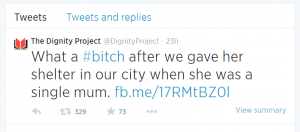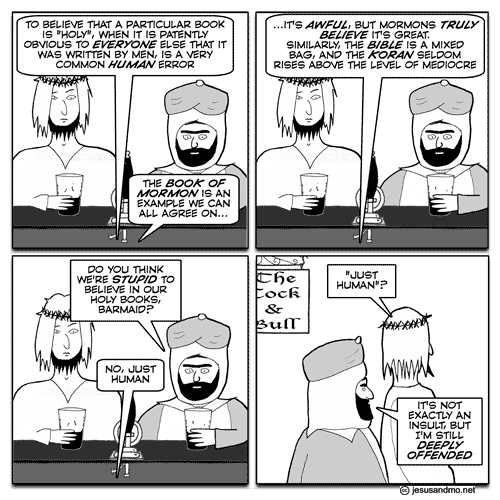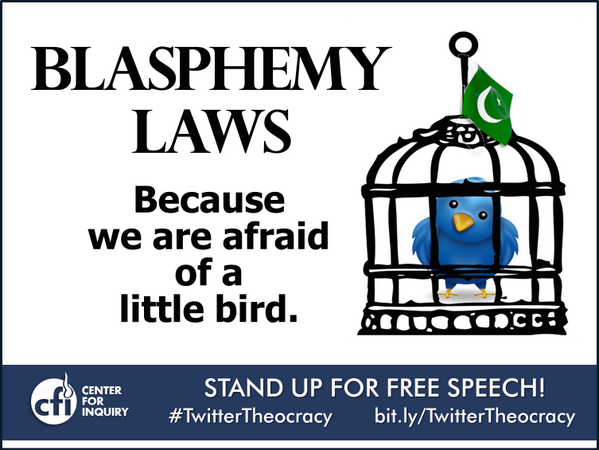Wow.
I’ve thought Chris Hedges is a terrible writer and human being ever since I read his terrible book I Don’t Believe in Atheists which came out in 2008. I found it to be both sloppy and vulgarly abusive; both lazily written and dishonest about the people he was abusing.
Well color me prophetic then, in light of a long piece in The New Republic reporting several instances of fairly shameless plagiarism. And then for good measure there’s Hedges’s belligerence when the plagiarism is pointed out to him, and then there’s also the circling of the wagons by his friends and colleagues, who swear up and down that he’s just a great guy so please shut up and go away. Yeah that sounds familiar.
Christopher Ketcham writes that Hedges submitted a long piece to Harper’s in 2010 about poverty in Camden, New Jersey.
The trouble began when Ross passed the piece along to the fact-checker assigned to the story. As Ross and the fact-checker began working through the material, they discovered that sections of Hedges’s draft appeared to have been lifted directly from the work of a PhiladelphiaInquirer reporter named Matt Katz, who in 2009 had published a four-part series on social and political dysfunction in Camden.
Given Hedges’s institutional pedigree, this discovery shocked the editors at Harper’s. Hedges had been a star foreign correspondent at the Times,where he reported from war zones and was part of the team that won the 2002 Pulitzer Prize for covering global terrorism. In 2002, he had received the Amnesty International Global Award for Human Rights Journalism. He is a fellow at the Nation Institute. He has taught at Princeton University and Columbia University. He writes a weekly column published in two widely read progressive websites, TruthOut andTruthdig. He is the author of twelve books, including the best-sellingAmerican Fascists. Since leaving the Times in 2005, he has evolved into a polemicist of the American left. For his fierce denunciations of the corporate state, his attacks on the political elite, and his enthusiasm for grassroots revolt, he has secured a place as a firebrand revered among progressive readers.
Some progressive readers. Not among me. That atheism book of his just reeks of badness – moral badness, characterological badness, not just literary or journalistic badness.
So, there was a lot of back and forth over the Harper’s article, with Hedges denying and excusing every step of the way.
“The Katz stuff was flat out plagiarism,” says the Harper’s fact-checker. “At least twenty instances of sentences that were exactly the same. Three grafs where a ‘that’ was changed to a ‘which.’” The fact-checker reiterated to me that first-person accounts in Hedges’s draft had him quoting the same sources as in Katz’s pieces, with the sources using exactly the same wording as in Katz’s pieces. “Hedges not only used another journalist’s quotes,” says the fact-checker, “but he used them in first-person scenes, claiming he himself gathered the quotes. It was one of the worst things I’d ever seen as a fact-checker at the magazine. And it was endemic throughout the piece.”
The fact-checker spoke on the phone with Hedges at least three times and exchanged about a dozen e-mails with him. “He was very unhelpful from the beginning, and very aggressive,” said the fact-checker. Hedges repeatedly claimed he had done original reporting. “Hedges reassured me there were no problems,” said Ross. “He then went to the fact-checker and tried to intimidate him and give him a hard time. Hedges told him, ‘Why are you going to the editor?’”
That fits exactly the impression I already had of him – he’s a very aggressive guy. He did a Point of Inquiry once, I think with Chris Mooney, in which he lost his temper and got very shouty. He’s a bully.
There’s a mass of detail in the article, all of it interesting.
In a query to Truthdig, I stated that this article would reveal at least two instances of plagiarism in Hedges’s Truthdig articles and asked for a response. Truthdig managing editor Peter Scheer replied: “Truthdig has always found Chris Hedges to be a journalist of high ethical standards. Years ago we received one request and one complaint from a Harper’s editor representing Christopher Ketcham and his wife. We resolved those issues with notes, links and clarifications to the satisfaction of everyone involved.” He made no reference to the Postman column. (It should be noted that the Harper’s editor was representing the magazine.)
Truthdig founder and editor-in-chief Robert Scheer (Peter’s father) later wrote: “I remain enormously impressed with the body of Chris Hedges’s work and would match it quite favorably for integrity and wisdom against any comparable offerings elsewhere on the Internet.”
When asked about the change in the text in order to credit Postman, the elder Scheer did not address the particulars of the change but wrote only that “Truthdig corrects errors when they are brought to our attention as we did in this instance.”
See what I mean about the wagon-circling? He’s our guy. He’s a hero. You must be wrong.
When I was researching this article for Salon, the editors there pressedTruthdig, given that the Postman correction appeared to be downplaying the plagiarism. In an e-mail to the Scheers and Truthdig publisher Zuade Kaufman, a Salon editor noted that, “due to the changes to Hedges’s piece that referenced Bartosiewicz’s article, Truthdig was clearly aware of potential misattributions in Hedges’s articles. When another attribution problem appeared in a Hedges article, Truthdig corrected it with an editor’s note that was both less specific and less prominently placed than the first one.”
Salon’s numerous attempts to get clarification of Truthdig’s correction policy finally resulted in a letter from Truthdig publisher Kaufman, who presented a series of accusations against both Salon and myself. “We are surprised that a publication as prominent as Salon would take this matter seriously,” wrote Kaufman. “In all honesty, we feel it raises serious questions regarding the true motives of Salon and Mr. Ketcham.”
Kaufman went on to note the “relative positions in the journalistic community between Salon and Truthdig and between Mr. Ketcham (and his spouse) and Mr. Hedges.” Because of these “relative positions” in the hierarchy of journalism, Kaufman stressed that “the issue of commercial motives cannot be disregarded,” and cited without elaboration “possible personal, economic and commercial gain that would be derived by Salon and Mr. Ketcham from damaging the reputation of Truthdig, Mr. Hedges, the Nation and other competitive publications and authors.” Nowhere in her letter did she address the Postman correction and its implications.
Sound familiar? Kill the messenger? “Drama.” “Blog hits.” “Rage-blogging.” “Attention-whore.”
I asked two journalism ethicists to look at the instances of plagiarism described throughout this piece. “These examples suggest not inadvertent plagiarism,” said Kelly McBride, who runs the Ethics Department at the journalism school the Poynter Institute, “but carefully thought out plagiarism meant to skirt the most liberal definition of plagiarism.” Robert Drechsel, the director of the Center for Journalism Ethics at the University of Wisconsin-Madison, noted that the use of material from Klein, Postman, and Hemingway “could be characterized as something that has come to be called ‘patchwriting.’ English and writing professors Sandra Jamieson and Rebecca Moore Howard have defined it as ‘restating a phrase, clause, or one or more sentences while staying close to the language or syntax of the source.’ Whether it happens intentionally, carelessly, or as an oversight, it’s a very serious matter.”
“Whatever the explanation for Hedges’s reporting,” Drechsel told me, “harm will have occurred. Trust is a journalist’s and journalism’s most precious commodity. Difficult to gain and virtually impossible to regain once lost. If there is even a hint of the possibility that misconduct was covered up, it’s even worse. Journalism will take another hit.”
But, you know, they’re just journalism ethicists, they’re not part of the Truthdig in-crowd, they’re not in the wagons that are being circled.
Ketcham includes a mournful little endnote.
As an authorial aside from the perspective of over 15 years of freelance journalism, and in the context of Kaufman’s letter, I should note that a possible result of this piece will be the burning of my bridges at the Nation, where I know the editors and have been published; the Nation Institute, from which I have received funding for investigative journalism published in Harper’s and elsewhere; Truthdig, where I have published half-a-dozen columns and have been proud of my work; and Nation Books, Hedges’s current publisher, a house I have always respected and admired.
Yup. Those bridges could be ashes now.
(This is a syndicated post. Read the original at FreeThoughtBlogs.)








